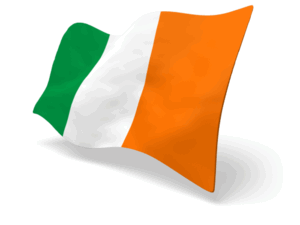Get Expert Advice to Study in Ireland
Study in Ireland
Capital
Dublin
Population
5.07 million
Language
English, Irish
Currency
Euro (~ INR 90)
Major Cities
Dublin
Belfast
Cork
Top Universities
Trinity College
University College Dublin
University of Galway
No. of International Students
31,720
Best Country to Study Abroad Ranking
25
Why Study in Ireland?
Indian students are increasingly choosing Ireland for higher education due to its world-renowned education system, top-ranking universities, and emphasis on innovation and research. These institutions offer diverse programs in science, technology, humanities, and business, catering to the aspirations of Indian students seeking a global education that prepares them for dynamic careers.

Moreover, Ireland’s welcoming and multicultural environment is a significant factor in its appeal to Indian students. The warmth of the Irish people, coupled with a strong commitment to diversity and inclusion, fosters a sense of community for international students. Ireland’s strategic location within Europe opens up avenues for travel and exploration, providing students with exposure to different cultures and opportunities to build international networks. The post-study work options also contribute to the country’s allure, allowing graduates to gain valuable work experience and potentially contribute to Ireland’s thriving industries.
Popular Courses to Study in Ireland

Information Technology & Engineering

Business & Management

Social Sciences

Science & Research

Creative Arts & Design

English Language & Literature
Admission Requirements for International students
Academic Transcripts and Certificates:
Transcripts and certificates from secondary school (for undergraduate) or previous higher education institutions (for postgraduate)
English Language Proficiency Test Scores:
IELTS, TOEFL, PTE Academic, or Cambridge English
Passport
Letter of Recommendation (LOR)
Statement of Purpose (SOP)
Portfolio (for Art and Design Programs)
Proof of Funding
Health Insurance
Confirmation of Acceptance for Studies (CAS):
For postgraduate students, you may need a CAS from the university confirming your acceptance onto the program
Intakes for Study in Ireland
Primary Intake
Autumn Intake (September to December)
Secondary Intake
Spring Intake (January to May)
Step by Step Application Procedure for International Students
Research & Choose a Course
Check Admission
Requirements
English Language
Proficiency
Prepare Academic
Documents
Create an Account
Submit Application & Pay Application Fee
Receive Offer of Admission
Pay Tuition Fees
Apply for a Student Visa
Prepare Visa Documentation
Health Insurance
Attend Visa Interview (if required)
Receive Student Visa
Travel to Ireland
Complete Enrollment Formalities
Start Your Studies
In Pursuit of the Best Study Abroad Options
Expert advice, quick admissions and hassle free student visa for the top ranked universities from the study abroad specialists.
Cost of Education
Tuition fees in Ireland ranges from Euro 10,000 to Euro 35,000 per year (INR 9,00,000 – 31,50,000) per year taking 1 Euro = INR 90
Living Cost
Accommodation:
€4,000 to €7,000 (INR 3,60,000 – 6,30,000) per academic year
Food & Groceries:
€2,500 to €4,000 (INR 2,25,000 – 3,60,000) per year
Transportation:
€600 to € 1,400 (INR 54,000 – 1,26,000) per year
Textbooks and Supplies:
€300 to €500 (INR 27,000 – 45,000) per year
Utilities (Electricity, Heating, Internet):
€600 to € 1,200 (INR 54,000 – 1,08,000) per year
Communication (Mobile phone, Internet):
€240 -€600 (INR 21,600 – 54,000) per year
Miscellaneous Expenses:
€1,200 to €2,400 (INR 1,08,000 – 2,16,000) per year
Part Time Work Allowance for International Students
- International students are allowed to work up to 20 hours per week during the academic term.
- During official university holidays and breaks, including summer holidays, international students are usually permitted to work full-time, up to 40 hours per week.
Student Visa & Post Study Work Visa for International students
Student Visa
C Visa – Short Stay Study Visa – For short courses (less than 3 months)
D Visa – Long Stay Study Visa – For students planning to study in Ireland for more than 3 months. Covers undergraduate, postgraduate, and other long-term courses.
Post-Study Work Visa
Stay Back Option - Third Level Graduate Scheme (Stamp 1G):
Allows graduates to stay in Ireland for 24 months after completing a degree program. Provides an opportunity to seek employment or further education.
Stay and Work Scheme (Stamp 1A):
Available for students who have completed a program at degree level or above in Ireland. Allows graduates to stay in Ireland for 6 months to seek employment or start a business.
Work Permit Scheme (Stamp 1):
After securing a job offer in Ireland, graduates can apply for a work permit. The work permit allows graduates to work in Ireland for the duration specified in the permit.
Start-up Entrepreneur Program (Stamp 5):
For graduates who wish to establish a business in Ireland. Requires a comprehensive business plan and approval from the Department of Justice.
Scholarship Options for Study in Ireland
Some prominent scholarships available to Indian students in Ireland:
- Dublin City University (DCU) International Scholarships
- Education in Ireland Scholarships
- Irish Research Council Scholarships
- Government of Ireland Scholarships for Indian Students
- Maynooth University Scholarships
- National University of Ireland, Galway (NUIG) Scholarships
- Trinity College Dublin Scholarships
- University College Cork (UCC) International Scholarships
- University College Dublin (UCD) Global Excellence Scholarships
- Waterford Institute of Technology (WIT) Scholarships
In Pursuit of the Best Study Abroad Options
Expert advice, quick admissions and hassle free student visa for the top ranked universities from the study abroad specialists.
FAQs
A: Most universities in Ireland accept English language proficiency test scores such as IELTS, TOEFL, PTE Academic, or Cambridge English.
A: Yes, international students on a student visa are typically allowed to work part-time during the academic term and full-time during scheduled holidays.
A: Apply for a student visa through the Irish Naturalisation and Immigration Service (INIS). Provide required documents, including the acceptance letter, proof of funds, and health insurance.
A: Yes, there are various scholarships offered by the Irish government, universities, and private organizations. Check eligibility criteria and application details with us.
A: The Third Level Graduate Scheme allows graduates to stay in Ireland for 24 months after completing their studies to seek employment or start a business.
A: Universities often provide accommodation options for international students. Explore on-campus or private rentals, and start your search well in advance.
A: International students are required to have health insurance. Check the options with us.
A: In most cases, family members can apply for visas to join you in Ireland. Check specific family visa requirements and processes with us.
A: If you need to extend your stay, apply for a visa extension before your current visa expires. Provide relevant documents and meet the eligibility criteria.

